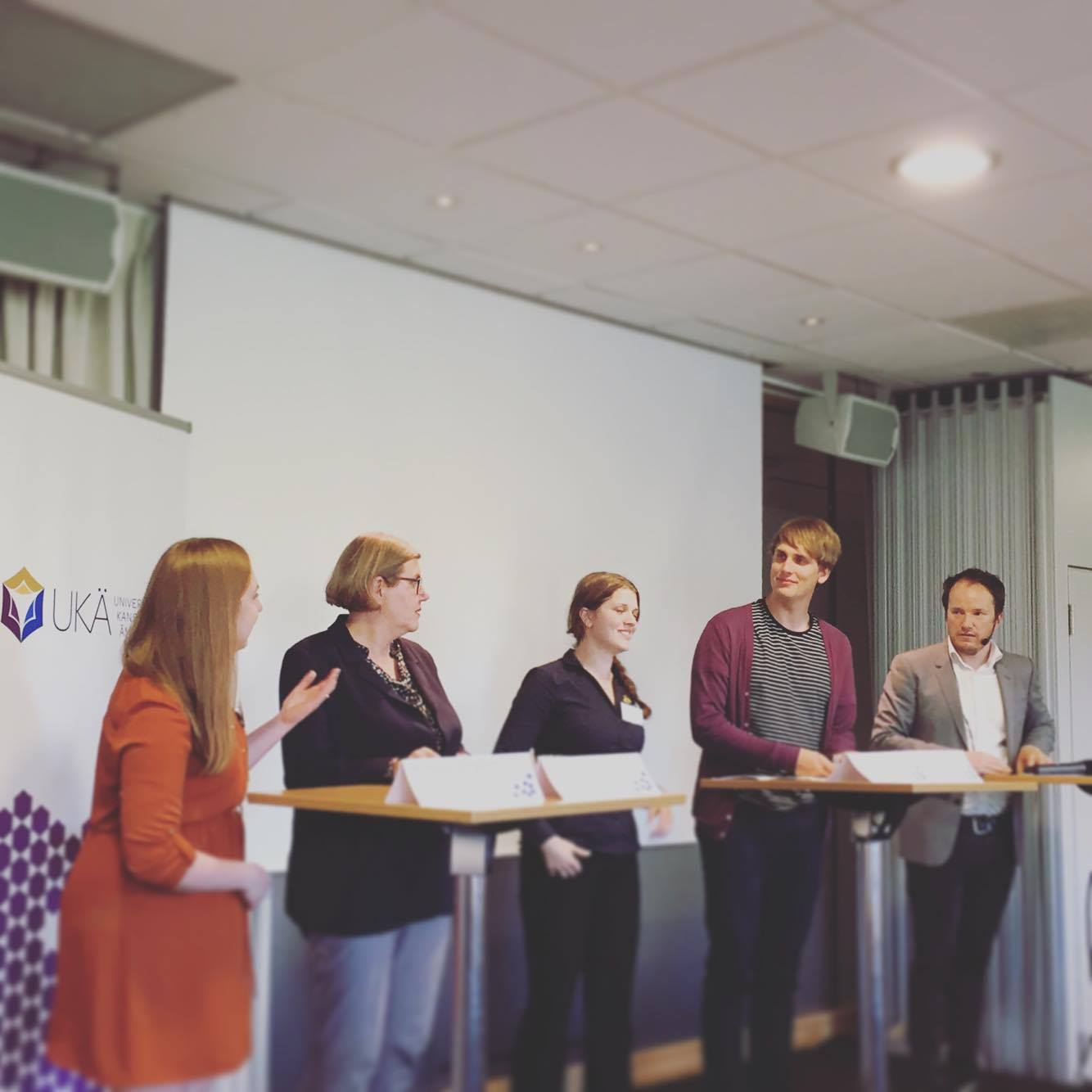On Monday, SFS participated presidium together with over a hundred representatives from the country's student unions in the University Chancellor's Student Day. On the agenda were two major issues for the university: the quality work of the higher education institutions and the conditions for student influence.
University Chancellor Harriet Wallberg has repeatedly emphasized the importance of the new quality assurance system, just like the quality of education, being a common concern for students, teachers, working life and the state. This means that we all have a shared responsibility to use and contribute to the system in a responsible way.
The unions discussed the student influence in the system, what is meant by results (the results of the education - not the students', important to remember!) And questions about comparisons between educations. The only clear concern expressed by the union representatives reflects the concern also expressed by higher education institutions: that the quality system would be very resource-intensive. It is natural that those who are already overworked react with skepticism to new initiatives. What both unions and universities must understand is that serious quality work is not (or should not be) a new responsibility for us.
The new quality system is just a new framework for systematically doing what we already do. A wise corps therefore does not see the work with the new system as additional work, but changes its existing activities to work within the system. We can benefit from the fact that the state now requires the higher education institutions to have a clear structure in their quality work. Instead of fighting to create forums for discussion and development, we unions will soon be able to operate in the structure created by the higher education institutions. Our work takes on a new form and becomes more efficient.
When UKÄ presented its work with the government assignment to follow up the conditions of student influence after the abolition of the compulsory union, the questions were more than the answers. The discussion was about both organizational and financial aspects. It became clear that the unions must define their work with student influence and relate it to the quality system, and that the higher education institutions must work together to find ways to give all students equal opportunities for good student influence. The absence of national coordination is total, but hopefully ideas for new collaborations were raised.

In addition, the discussion came to focus on the really interesting thing: what is a good student influence? What do we mean by representative, when the unions' member recruitment is less and less about educational policy aspirations? Does the member organization fit as a tool for arousing and channeling students' involvement looks like today? Happily enough, both unions and authorities thought in new directions and confirmed my conviction: that the student movement will need to change its way of working. With a new understanding of how learning works and new requirements for the educations, our focus must also be shifted. From influence to participation. From doing the right thing to doing good, from monitoring to development. From a bottom-up perspective to collaboration, from mainly representative student influence to also working for each student's commitment and participation in shaping their learning.
Here, the link between the future of student influence and the quality system becomes clear. In order to achieve our goals and international commitments to an accessible education with student-centered learning, we must be transformed as a movement. We need to put education issues at the center and question our old habits. At the same time, we will never be able to create the commitment that student-centered education gives rise to. Here we are completely dependent on the new quality system and the higher education institutions' transition to a modern pedagogy.
It may seem like a factor 22 - for the student influence to be strong in the future, the educations need to change and build on the students' active participation and commitment. At the same time, is an active student influence needed to change the university? Of course - but we are lucky to have friends in our quest for a new university, not least enthusiasts around the university. We should focus on the key issues: wise merit systems that value pedagogical skills, systematic development work where teachers and students discuss their education and high scientific standards that guarantee society's trust and funding. Then, in the long run and with patience, we can do a lot for learning and knowledge in society.
I left Student Day with a sense of hope - and that we have a lot to deal with.
